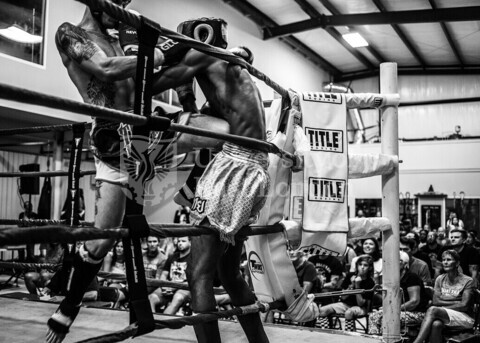University Of East London-Led Research Shows Power Of Kicks Improved With Weightlifting
A training programme using Olympic weightlifting derivatives, where athletes only carry out a part of the weightlifting movement, can increase the power of their kicks, according to the study.
The research, by Lee Brown, a lecturer in strength and conditioning at the University of East London, was published in the European Journal of Sports and Exercise Science. Silvino Domingos, a master’s student, and Dr Andy Galbraith and Dr Gary Doyle were co-authors of the research.
In the study, positive performance measures in roundhouse striking were identified using Olympic weightlifting derivatives with Muay Thai fighters.
Muay Thai is sometimes referred to as Thai boxing and involves striking with upper and lower limbs and clinching. It features a roundhouse kick where the kicker raises their knee and strikes their opponent with their foot or shin.
The experimental group followed a weightlifting training programme and their performance was measured against a control group which followed a traditional training programme. Strike impact power was measured using the PowerKube, a device for measuring the power of kicks.
In the experimental group, roundhouse kicking performance improved by 7.41 per cent and 7.54 per cent in countermovement jump height after an eight-week weightlifting programme. The control group only improved by 1.54 per cent in their roundhouse kicking performance and 0.33 per cent in countermovement jump height.
Lead author Lee Brown said the study demonstrated that Olympic weightlifting derivatives improves the performance of Muay Thai fighters without increasing weight gain, which would put the fighter in a higher class.
It is a widely accepted culture within combat sports to cut weight prior to competitions. However, this can be harmful if more than eight to ten per cent of body mass is lost due to sweat, and
this may cause death
. Hopefully, this may increase awareness within fight camps on how to improve their fighters’ power without having to cut weight,” he said. “Another of our research studies into performance modalities for Muay Thai fighters has recently been accepted by the Journal of Strength and Conditioning Research, which is adding to our understanding of the physiological responses of Post-Activation Potentiation Enhancement (PAPE). This study, when published, will demonstrate the effectiveness of small changes to a strength programme that can gain massive increases in power output on striking. With a further three students from the University of East London that were included as authors, this reflects our vision for student publications to increase their career potential.”

